![]() |
|
|
 |
|
China - Taiwan: peaceful reunification through traditional culture of harmony
|
|
|

|
|
|
|
| |
China builds a harmonious society
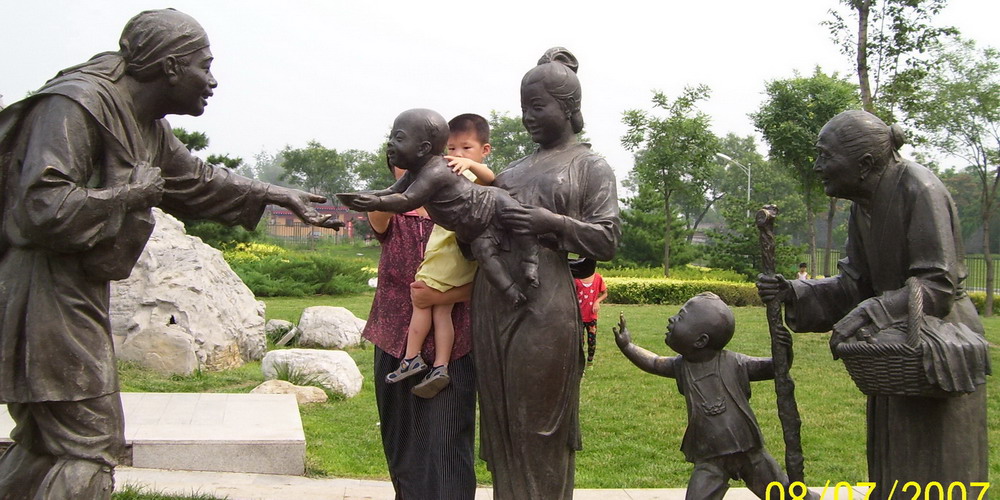
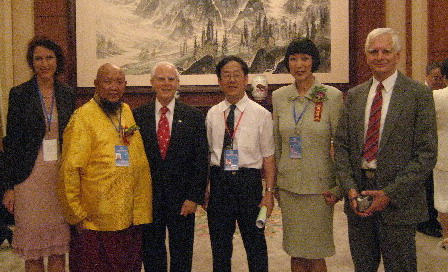
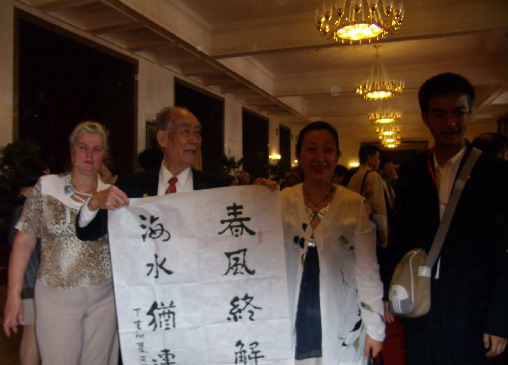
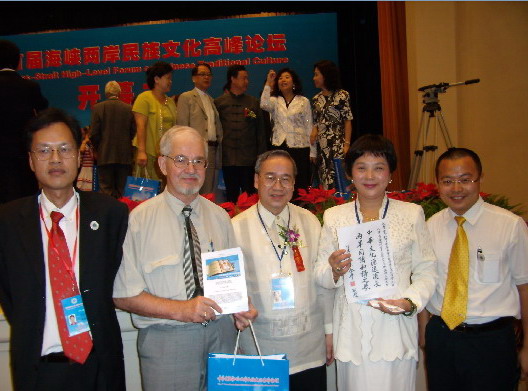
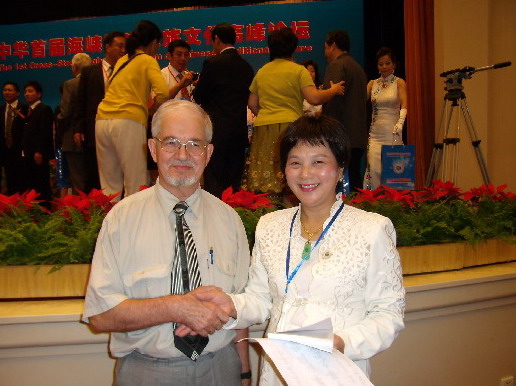

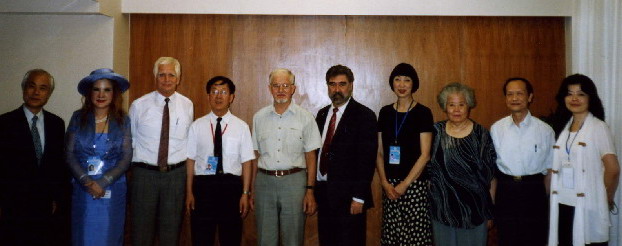
China - Taiwan: peaceful reunification through traditional culture of harmony
The report about trip in China from July 3 to July 15, 2007By Dr Leo Semashko,Peace from Harmony Founder and President The China NGOs "The World Peace & Development Association" (WPDA) and "The Chinese Traditional Culture Promotion Association" (CTCPA) have held "The First Cross-Strait High-Level Forum on Chinese Traditional Culture" July 5-9 2007 in Beijing. The Forum coordinators were 13 public and business organizations from China, Taiwan, USA, Japan and England. The Forum organizers have paid all charges for its participants. I was invited to this Forum in a delegation of the International Association of Educators for World Peace (IAEWP). This delegation was headed by Dr Charles Mercieca, IAEWP President and also by Lana Yang, the Main Representative to the United Nations for IAEWP. In the delegation also have come Tibetan Lama Gangchen (he lives in Italy), Dr David Williams from Oxford (UK) and Dr Jean Faullimmel from France. The Forum has collected about 1000 known peacemakers, workers of a culture, science, art and the past generals from China, Taiwan and other countries, first of all of Asia. Approximately 700 humans were from China, and others were of Taiwan and other countries. This Forum was devoted to "peaceful reunification of China ", i.e. reunification of China with Taiwan, Hong Kong and Макао on the basis of traditional culture. The Forum slogan is: "One Family across the Strait, to Construct a Harmonious China". In the Forum Program is spoken, that it "is planned in accordance with President HU Jintao’s instructions ‘to expand the cross-strait cultural exchange’ on the basis of a recognition of the principles of "One China" and peaceful unification of China". "Purposes of organizing the forum are to carry forward the great Chinese culture and to make contributions for building a harmonized common world when constructing a harmonized national unity internally". "Some retired high-rank generals from both the Mainland and Taiwan shall meet person to person in Beijing to discuss the peaceful development of cross-strait reunification … and the plans for a harmonious China". Mr. Ma Shanling, Chairman of the WPDA, emphasized the basic task of a Forum: peaceful national reunification of China through the Chinese traditional culture. According to these purposes the Forum program included first of all the cultural actions: theatres visiting (the strongest impression was made by performance “The Legend of Kungfu. The most Exciting Kungfu Show in the World” in Beijing Red Theatre), museums, exhibitions etc. Еру Forum has opened in the Great Hall of the People, Beijing. A lot of attention and time was given to the informal communications during common breakfasts, lunches, dinners, banquets and numerous trips by buses. The Forum delegates sang, drew, exchanged of the visiting cards, books and other gifts. They have planted the Peace Tree. They have signed the invitation to all Chinese people in the world to go home for the 2008 Beijing Olympic Games and picture "Peaceful and Flourishing Era". on the Forum the warm peace and friendliness atmosphere reigned. The scientific part of a Forum was reduced to the two-hour seminar, which was divided into two parts: for talking in the Chinese and English languages. At the English seminar almost all representatives of our delegation have acted, and also professors from Japan and China, who spoke on English. Themes of the speeches were: Lana Yang: Developing a Culture of Peace - A Stepping Stone into a Harmonious WorldJean Faullimmel: How Can Sustainable Development Contribute to World Peace and Harmony between Nations?David Williams: To Construct a Harmonized WorldLeo Semashko: How to construct a harmonized social world? I send you my speech in attachment, which was devoted to the traditional Chinese culture as a culture of harmony taking the beginning from Confucius, who lived 2500 back. My speech was finished by our five suggestions for the PRC Government: 1. Work in the Institute of Sociology of CASS the long-term (for 10 years) Program of harmonious construction in China on the basis of the tetrasociological scientific theory of the harmonious spheres and harmonious sphere classes. The project of this Program is offered as one of variants for discussion in the Chinese society and the PRC Government. 2. Create the Global Civil Movement "For social harmony in the world" in support of China with headquarter in Beijing. The basis of this movement could become that International community of harmony, which has developed on our International site "Peace from harmony". This community unites more than 200 humans from 36 countries of the world and tends of growth. 3. Create in China the International Satellite TV Broadcasting on Harmonious Peace Culture and its International Editorial Staff. 4. Create in China the International and Interconfessional Academy of Harmony for training of the experts in the field of social harmony for all spheres of society and regions of the world. 5. Introduce the lectures course "Culture of harmonious peace" in Beijing (for the beginning) University. I developed this course. Its Program is submitted on our site (http://www.peacefromharmony.org/?cat=en_c&key=240). I am ready to read it at any time. These suggestions in Russian, English and Chinese languages I have transferred to the WPDA Chairman Mr. Ma Shanling for transfer to Government of Peoples REPUBLIC of CHINA. Such was the Forum official party, which was finished on July 9, but we with the wife remained on 5 days. Now let to share with you my personal impressions. I and wife on the Forum and after it accompanied love and admiration of the Chinese culture and Chinese people. We be filled with brotherly love to Ms. Dongrong Sun, wonderful Chinese woman, volunteer-interpreter, knowing English and Russian, Buddhist, A/Professor of University, Vice president of China Lingua Calligraphers and Painters Association and to her son Jack, the post-graduate student, which also was the volunteer-interpreter. We admired with prevenance of the Chinese students - volunteers, which served the Forum. I admired with the Professor Vang Ju-chou, former general from Taiwan, founder and president of Tao University in Taipei. He gifted me his book in the Chinese and English languages devoted to Taoism as to the second after Confucius source of the Chinese culture of harmony. We admired with the Director of Confucius Institute Mr. Li Qimao, who has shown himself not only as philosopher, but also as the thin artist and calligrapher. I admired with Lama Gangchen, with which we also have exchanged the information and who counts the main rule of harmony the ability to transform negative in positive. We admired by three Harmony Palaces in the Chinese Emperors City (Forbidden City): Supreme, Preservation and Perfect Harmony. These Palaces are constructed 4-6 centuries back. We admired with Bells of Harmony, which are assembled from 56 cities of China. It is the largest in the world a collection of similar bells. We admired with harmony of the Chinese tea and tea ceremony in the special tea house. We admired with art products from Chinese jade (nephrite), for example, four spheres enclosed one in another without cuts. We admired with Chinese people, which singed about temples the different songs, including Ode to Confucius. As Frederich von Schillerhas created Ode to Joy, so the Chinese people has created Ode to Confucius, in which there are such words: "He (Confucius) spreads rays of Bright Virtues under Heaven! / And moves the world towards the State of Great Harmony, /...." I shall not speak about our admiration of the Chinese architecture, Great Chinese Wall, powerful economic growth, fantastic Olympic buildings, gigantic construction and etc. Certainly, we saw also the negative sides: poverty, homeless, cadgers etc. But where they are not present? Main is that the Chinese people aspire to overcome them through construction of a harmonious society. I have brought on the Forum 40 books with our Magna Carta of Harmony by 43 authors from 16 countries in a cover on the Chinese language. I have brought also 10 CD-disks of copies of our site. I have presented these disks and books our friends and colleagues from China and Taiwan, students – volunteers, in library of Beijing University Library etc. (My luggage with others 40 books was lost in the airports and it is not found till now). on the Forum there were many private discussions of our Magna Carta through which there were acquaintances and friendship with the most different people from China and all world. Many from these people have agreed to cooperate with us and our site “Peace from harmony”. In particular Ms Dongrong Sun willingly has agreed enter Board of our site. I shall present her in more details in September. Key idea of the Forum: peaceful reunification of China and Taiwan through traditional culture of harmony has induced me to open on our site the appropriate page and to publish on it the named speeches and some photos, which I shall select from my Chinese collection almost in 200 pieces, and also that send me from China and Taiwan. This page will show China as an example of peaceful reunification and reconciliation for the peoples, which are divided and are at enmity among themselves. This page will show, that if the Chinese Government will accept our projects, first of all on creation of the TV Satellite of harmonious peace culture and Academy of Harmony, that they will help China, as the first country in the world building a harmonious society, to attach the Olympiad-2008 the qualitatively new meaning in history of Olympic movement as "Olympiad of Peace from Harmony". It fully corresponds to the Chinese culture of harmony, will give it the new dimension of development and will allow expanding its international support and influence in the world. Such is my report and practical conclusions from the trip to China, which I can consider as successful. Best harmony wishes, Dr Leo Semashko,Peace from Harmony Founder and PresidentThe Board member of four International Organizations: IFLAC, IAEWP, WPDA and HumanDHS July 19, 2007------------------------------------
China
’s Transition into aSociety of Social Harmony Charles Mercieca
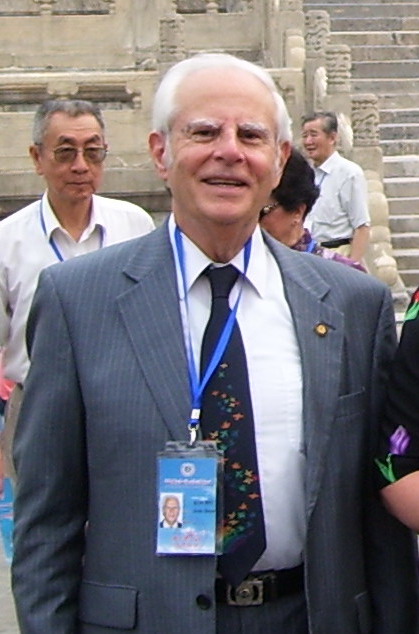
Ph.D. PresidentInternational Association of Educators for World PeaceDedicated to United Nations Goals of Peace Education,Environmental Protection, Human Rights & DisarmamentProfessor Emeritus, Alabama A&M University China represents one of the oldest civilizations in the entire history of our earthly society. Its dynasties managed to leave legacies that have enriched the culture of China in many unique ways. By nature, the Chinese are very kind people and they try to be helpful with those around and with those they come across. They also tend to live in peace and to let others live in peace as well. The only ambition the Chinese people seem to have is to see the members of their relatives and friends equipped with all the vital needs of life. Comprehension of China Today, China has emerged to become the most populated nation on earth with well over one billion people. Its people always managed to keep together partly because of the virtual common language they share, and partly because of the common rich culture they inherited. Although the Chinese language may give the impression of being difficult, its grammar and syntax are much easier than most languages. In fact, in many countries more and more people are now studying Chinese by using Roman letters instead of Chinese characters. In China we have some 56 different ethnic groups each one with a culture and language of its own. Hence, China, for all practical purposes, could be viewed as a conglomeration of ethnic diversities where people everywhere tend to live as brothers and sisters in many ways. The Chinese government needs to be commended for its successful effort to make harmony a reality. The plan to have merely a defensive military is saving China billions of dollars. Such saved money is being used to improve the transportation system, and to build better hospitals, schools and housing facilities. China has taken the lead to set up a good example in terms of national priorities. If we examine the lives of some of the best religious leaders from Buddha and Confucius, all the way to Jesus of Nazareth, Mahatma Gandhi, and Mother Teresa, we will discover they all tried to help others by setting out a good example first. The Chinese people, on the whole, enjoy a better health care system and a better education than most of the leading nations in the world. People are encouraged to be creative and their constructive contributions are deeply appreciated. The civilian economy is developing much faster than ever anticipated. People everywhere are provided with all the necessities of life. As a result, one does not notice much tension in the faces of the Chinese people. As a whole, they tend to look serene and peaceful. Exposition of Good Will In the world at large, China is being viewed increasingly as an asset and as a benefactor. one of its greatest assets lies in its determination to view its strength not in military build-up but rather in the continuous growth of its civilian economy. This has managed to enhance greater respect and credibility from many nations from across every continent. In fact, the several nations of Asia are finding themselves more comfortable in dealing with China than with any other country. China’s goal is not to expand its territory globally but rather it focuses on strengthening itself economically, educationally and health-wise. Today, the standard of living in China is considerably better than the standard of living in the vast majority of nations in the world. In recent times, China has taken the lead to help the developing nations as to narrow the gap between the rich and the poor by providing them with plenty of humanitarian assistance. China seems to believe that if people’s life is improved, a lasting world peace would become a reality where everyone would be a winner and where no one would be a loser. This reminds us of Unesco’s preamble which says: “Since wars begin in the minds of men it is in the minds of men that the defenses of peace must be constructed.” China has noted recently that a number of developing countries have become characterized by insecurity, natural disasters and outbreak of major communicable diseases. China would love to see people in every country being equipped with good hospitals, schools, adequate housing facilities and proper nourishment. This will guarantee the development of social harmony and peace. It has been predicted that China, joined by India, will become the strongest economic power in the world by the year 2045. Over the past two decades, China’s economy grew immensely. This was partly due to China’s consent to let capitalism infiltrate its communist system. Because of this, today we do find several Chinese people who make a lot of money and who may be termed rich for all practical purposes. Also, a lot of Taiwanese businessmen opened branches of their respective products on Mainland China. Unlike with the case of North and South Korea, the Chinese people in both Mainland China and Taiwan seem to be free to communicate with each other. In this respect, Hong Kong serves as a linking bridge between the mainlanders and the islanders. The way to political and economic unification between Mainland China and Taiwan seems to be much closer at hand than the possible union between North and South Korea. The secret may lie in the Chinese ability to establish healthy and lasting dialogues, something that the Korean peninsula, as of this moment, seems to lack. Increased Trust in China Nowadays, China is being viewed less and less of a threat by the world at large. one of its greatest assets lies in its determination to view its strength not in military build-up but rather in the continuous growth of its civilian economy, as stated earlier. After all, this was the kind of strength that brought both Germany and Japan out of their total collapse following the end of World War II. Historically, military build-up always led to the eventual destruction of a nation’s economy. In fact, several nations that were either demilitarized or held a token military were always blessed with healthy and highly educated people. After all, wars have always served as an instrument to kill people and to destroy the infrastructure of entire communities. Today, the standard of living in China is much better than that in the vast majority of nations in the world. In recent times, China took the lead to help the developing nations to narrow the gap between the rich and the poor. China’s policies, as revealed by its role at the United Nations, prove that this huge nation of over one billion people is determined to do all it can to uphold world peace by all means conceivable. Besides, China made it clear that the humanitarian assistance it gives to the poor nations of Africa and elsewhere does not have any strings attached. While we find leading politicians in the western world visiting African nations to offer them weapons and all kinds of military equipment, Chinese politicians visit the same African nations to offer them medical equipment, educational material, and better housing facilities. We may recall here the words of US President Dwight Eisenhower when, in his farewell speech to Congress, he said: Remember that all people of all nations want peace, only their government wants war.” It is quite ironic to see governments waging wars, supposedly to save the lives of people, when they literally destroy the infrastructure of nations and kill tens of thousands of people amounting to millions on a global scale! We need to see the major nations of the world taking the lead to wage peace everywhere instead of war. As the Roman proverb goes: Satis est satis – enough is enough. Nowadays, China seems to believe that if people’s life is improved, the chances for a lasting world peace would become a tangible reality where everyone would be a winner, as stated earlier. This explains why China made it a point to rely more and more on the development of healthy dialogues everywhere than on the promotion of wars. China knows well from experience how cruel it is to have tens of thousands of innocent citizens being massacred brutally and unnecessarily. This is a nation that has suffered the ravages of foreign invasions over the centuries to the detriment of the entire Chinese people. Such war episodes should never be repeated again by all means. Philosophy of Hu Jintao Since President Hu Jintao came into office, he assumed the responsibility not only to improve the life of the Chinese people, but also the lives of people living in underdeveloped countries, especially those in Africa. During the recent Asia-Pacific Economic Cooperation (EPEC) CEO summit in Hanoi on November 17, 2006, China’s President Hu Jintao said: “We will further deepen the reform of foreign-related economic sectors, accelerate the transformation pattern of trade growth and improve trade structure to ensure balanced growth of import and export.” Then he added saying: “We will actively introduce foreign investment, open the service sectors wider, enhance intellectual property rights protection and raise China’s overall level of openness.” Besides, the Chinese President called for building a harmonious world of enduring peace and common prosperity in the best interest of all people without exception. He described harmony as a “defining value of Chinese civilization.” In spite of this, the Chinese President recognized some of China’s problems and challenges that included “structural imbalances and inefficient modes of economic growth.” He also stated that issues of this nature could be resolved properly and effectively if in every approach taken the welfare of the people is given top priority by all means. China’s goal of the future is to aim at comprehensive, coordinated and sustainable development. What is encouraging lies here. Chinese government officials seem to be very serious and determined to bring about a permanent peace in the world, as far as it depends on them. They have a clear concept that all people in the world are inter-related same as the various members of our body. If a member of our body were to be injured, the entire body is bound to feel the terrible pain. And once that injured area is cured the entire body feels at ease. The difference between the statesmen and the politicians usually is this.The statesmen tend to work for the universal welfare of all people without exception. They try to make sure that all people are provided with the vital necessities of life. on the other hand, the politicians tend to look after the welfare of some to the exclusion of others, which explains why quite a number of them tend to resort to war to get what they want by all means. Chinese government officials seem to be increasingly becoming more and more statesmen in the sense explained. This is certainly highly encouraging. Setting a Good Example In view of what has been stated, we may realize that regardless of its past behavior since the communists took over in 1949, the China of today has emerged to become very affluent. It has set example to the whole world relative to governmental priorities when it comes to the dire needs and welfare of the people. Most importantly, China is doing its best to curb all kinds of abuse of power with determination and eventual success. This is certainly making the people feel more secure and more at ease. More foreigners need to visit China who may learn more from what they see than from newspapers and books. It would be highly encouraging if the leaders of the major nations in the world were to follow the lead of China to crack seriously on corruption especially as it emanates from government officials, if any. For example, many are aware of the fact that the manufacture and sales of weapons and the promotion of war has turned into a lucrative business. Government officials of any nation who are pushing for the manufacture and sales of weapons and for the promotion of wars to put more and more money into their pocket should be brought to justice and prosecuted for abuse of power. For those who may be skeptic about China’s efforts to help the developing nations with no strings attached, they would need to explore as to whether or not China is also furnishing weapons and military material to such nations and, in case, to what extent. The concept of war to solve human conflicts has become very antiquated. The idea of a nation to bring under full control another nation through the waging of a devastating war has proven constantly to be fallacious and disastrous as we have seen in Vietnam, Iraq and quite a few other countries. We should all be optimistic about China’s good intentions as long as its assistance to other nations is restricted to humanitarian needs that relate to medicine, food, housing facilities, and anything constructive. Besides, we should also look forward to seeing China assuming global leadership by all means in due time to help create a genuine global society of social harmony.-------------------------------------- Developing a Culture of Peace-A Stepping Stone into a Harmonious World Lana Yang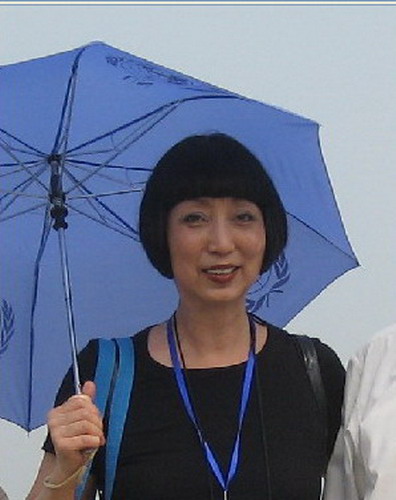
The Main Representative to the United Nations for IAEWP
Day and night occupy the same space, yet they are the opposite of each other.When the light appears in the morning, the darkness disappears.Likewise, if we promote a culture of peace, the violent culture shall gradually be displaced. One can say that the modern Chinese history has been shaped by a series of foreign invasions since the mid 19th century.The repeated foreign invasions with economic interests coupled with military powers, beginning with the two Opium Wars in 1840-1843 (Britain) and 1856-1860 (Britain and France), and Eight Powers Invasion of China in 1900-1901, by Britain, France, Germany, Austria, USA, Russia, Japan and Italy, which brought about the signing of humiliating unequal treaties followed by the Chinese resentment of foreigners resulted in the Boxer Rebellion (1899-1901). As a result, after 10 revolutions, Dr. Sun Yat-Sen overthrew the corrupted Qing Dynasty in 1911, founded the Republic of China.A series of internal unrests and civil wars in various regions of China occurred, followed by another Japanese invasion in 1937, which caused loss of lives and great sufferings among the Chinese people. Like many other countries, China and Taiwan are brothers and sisters divided by a civil war. Civil wars occur when brothers and sisters differ in their opinions. The brutality of civil wars around the world is well known. For example, the civil war of the USA in 1861-1865 produced close to 1 million casualties, approximately 3% of the population of the time. Based on the 1860 census figures, 8 percent of all white males aged 13 to 43 died in the US civil war, including 6 percent in the North and an extraordinary 18 percent in the South. The Chinese civil war between KMT and the communist party resulted in several millions of deaths, estimated from 0.65 to 2% of the population. I grew up in a family contributed to both sides of the Strait. My mentor was Aunt Sophie Yang who graduated from the second year of the Peking Union Medical College; she was a student leader in the May Fourth Revolution in 1919, later inspired the young students in the “Self-Awareness Movement” in Taiwan. My builder uncle Mr. Dao who built Dr. Sun Yet-San’s Mausoleum in Nanjing; and my economist uncle Zhao Yao Teng, the minister of economics, brought Taiwan to prosperity. on the side of mainland, another Uncle Mr. C.L. Feng, who passed away last year, founded China Daily in 1981, the English newspaper in China, to help China communicate with the rest of the world. I miss my homeland China where I was born in Nanjing, and Taiwan where I grew up and had many wonderful childhood friends; I am also greatly indebted to the USA where I have received excellent education in medicine and business. I view myself as a citizen of the world. The Chinese heritage, culture and people, undivided, are always in my heart. It is wonderful to have witnessed the continuous peaceful development of China in recent years.It gives us hope for a better world for our future generations. When there will be a family reunion of China and Taiwan, based on cross-strait sharing the common interest:A peaceful and self-sustainable country which shall never be invaded again, with the ability and spare resources to help people of countries in need. According to the data from the World Bank, China was #1 in World GDP in 1820. After more than 150 years, China is back on track to a thriving economy.However, based on my experience in the USA for nearly 40 years, there can be tremendous negative side effects resulted from the build up of capitalism without equal emphasis in the spiritual growth, business ethics and social harmony. It is in the wealth of the Chinese traditional culture and philosophy of Confucius and Buddhism that there is universal compassion and love.Through forgiveness we can move on to a prosperous country without being held back by negative experiences. According to the Chinese traditional culture of Confucius philosophy: “Cultivate the integrity of the individual, then take care of raising the family, then the effective governing of the nation, then bring peace and harmony to the world”This is the order of priority in our lives.“The World Belongs to All”.This is the concept of the global community.“Treat other’s elderly like your own elderly, Treat other’s youngster like you own youngster, the world shall be in peace”.This is the action of the universal compassion. History shows that when there was not an effective central government leadership, China fell into small states combating with each other, great casualties resulted. A chart of the lost lives in China’s historical wars is attached to give a perspective. It is in the Chinese traditional philosophy that a good government should be like a good parent. China needs an effective government, to serve its people like a caring parent, to provide good education, abundant food, adequate healthcare, and equal job opportunities to all citizens. Most importantly, a good government shall cultivate a peaceful culture in the society.Only when we live in a ubiquitous culture of peace and harmony, we shall have individual inner peace, followed by family peace, and national peace; finally, the world peace shall be attainable. 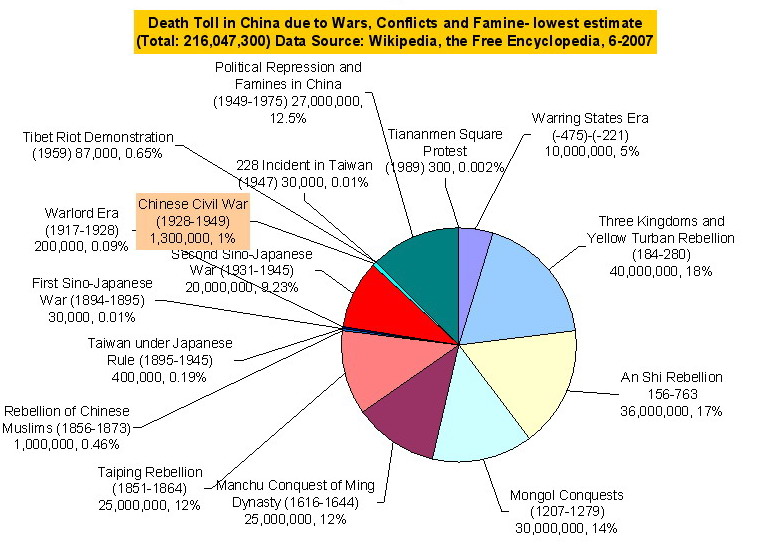
---------------------------------------------------------------------------------------------------------
First Cross Straight High Level Forum on Chinese Traditional Culture Beijing, China 5-9 July 2007 Message by T.Y.S. Lama Gangchen
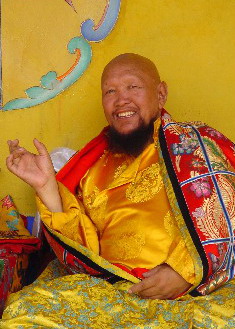
L.G. World Peace Foundation UN NGO
http://www.lgpt.net/
Thank you very much for this invitation to speak today in this First Cross Straight High Level Forum on Chinese Traditional Culture. Tashi Delek!
Since I left Tibet in 1963 to when I first returned in 1987 upon the kind invitation of H.H. The 10th Panchen Lama, until today I have had the opportunity to witness the development and progress in our country in so many ways.
China has a very unique opportunity, as it has deeply rooted ancient traditions and cultures of 56 ethnic minorities and at present has one of the fastest growing economies. I greatly rejoice in the initiative to hold such this important forum to promote international friendship and understanding of the diverse Chinese cultures and 5000 years of civilization.
As my experience during the last decades in the West has shown me, material development alone is not enough to develop a healthy society. The world at large already suffers many disastrous side effects due to the industrialization during this last century, such as the exploitation of natural resources, global warming, sicknesses like HIV. By placing great emphasis on the protection and preservation of the ethnical cultural traditions and initiatives, such as was done during the First World Buddhist Forum in Hangzhou in April 2006, China could become a very special example to the modern world of how to create a balanced society that has two wings to fly; namely the economic and the spiritual.
Our ancient traditions are treasure groves of values and principles to construct a harmonious society. China is the treasure house of many precious cultural heritages as the Chinese culture is composed of a multi-facetted background, which provides a rich variety of ancient traditional customs and practices.
From all these ancient traditions we can learn many ideas that can help our modern society, for example, how to respect and heal both our natural and urban environments; our ancestors created balance and harmony through good city planning and architecture. All ancient cultures respected nature and used sacred spaces as integral parts of their urban environments. Especially, in China you have the great science of Feng Shui, and a precious heritage of great masters like Confucius or Lao Tse, who taught about the natural laws of the five elements and the effects on the environment, our health, stability, wealth conditions, etc individually and collectively.
In particular, China has exceptional spiritual wealth of its numerous ancient traditions, such as the Mahayana and Vajrayana lineages. Moreover in these modern times, the Chinese government has shown great respect towards the spiritual heritage by, for example, officially recognizing the reincarnation of H.H. The 10th Panchen Lama as the 11th Panchen Erdini and many other important reincarnations.
Great examples of our ancient traditions can help and guide us to develop a peace culture and collectively make a big effort to overcome the culture of violence. We need to create a harmonious society where brothers and sisters live together in peace and unity. Our media should show less violent images, especially for entertainment.
Today we think love and compassion belong to religion, but really everyone has love and compassion even birds caring for their young ones. But until now only religions, like Buddhism develop these qualities. I hope everyone can develop more love and compassion therefore we need to reveal the secrets of the ancient traditions and work for this.
Thank you very much.
刚坚活佛发言稿 非常感谢中华首届海峡两岸民族文化高峰论坛给我机会在这里演讲。 自从我1963年离开西藏,到1987年收到十世班禅喇嘛H.H.的热情邀请第一次返回西藏,直到今天,我已经从诸多方面亲眼目睹了我们国家的发展和进步。 中国深深地根植于古老的传统文明,拥有丰富的少数民族文化,目前是世界上经济增长速度最快的国家之一。我很高兴你们能举办这样一次重要的论坛来促进国际友谊和对多元中华文化和五千年文明的理解。 在西方游历几十年的经历使我看到,单纯的物质发展并不足以发展成一个健康的社会。上个世纪的工业化已经给世界带来了灾难性的负面影响,例如自然资源枯竭、全球变暖、艾滋病等疾病。正如2006年4月在杭州举办的首届世界佛教论坛强调对民族文化传统的保护和保存,中国会成为现代世界一个独特例子来展示如何建立两翼双飞的平衡社会:也就是经济和精神平衡发展。 我们的传统文化是建设和谐社会的价值和原理的宝库。因为中国文化包含多元背景,这就提供了丰富多样的传统习俗和习惯,由此中国是众多珍贵文化遗产的聚宝盆。 从这些古老的传统中我们可以学到很多思想,这些思想有助于我们现代社会的发展,例如,如何保护和复兴我们的自然和城市环境,我们的祖先通过良好的城市规划和布局创建平衡和和谐。所有的传统文化都尊重自然和作为城市环境整体部分的以往神圣空间。尤其是在中国人相信风水,尊重孔子和老子这样的圣人,他们传授我们“五行”的自然法则以及环境、健康、稳定、财富状况等个别和整体效应。 特别是,中国有大量关于古老传统的独特精神财富,诸如大乘和密宗。而且在当代,中国政府已经对精神遗产表示了尊重,例如正式承认十世班禅喇嘛H.H.转世十一世班禅额尔德尼再生和许多其他重要的转世。 关于我们古老传统的大量案例能够帮助和引导我们发展和平文化和为克服野蛮文明做出大量贡献。我们需要建设一个和谐社会,兄弟姐妹们和平而统一地生活在一起。我们的媒体应该减少银幕中的暴力镜头,尤其是娱乐界应该引起重视。 今天,我们认为爱和同情属于信仰方面的问题,但事实上每个人都有爱和同情,甚至连鸟儿也会关怀他们的雏鸟。但直到现在,只有信仰,像佛教,在发扬这种品质。我希望每个人都能发扬更多的爱和同情,由此我们需要揭示古老传统的秘密并为此而工作。
----------------------------------------
HOW CAN SUSTAINABLE DEVELOPMENT CONTRIBUTE TO WORLD PEACE AND HARMONY BETWEEN NATIONS? Jean Faullimmel
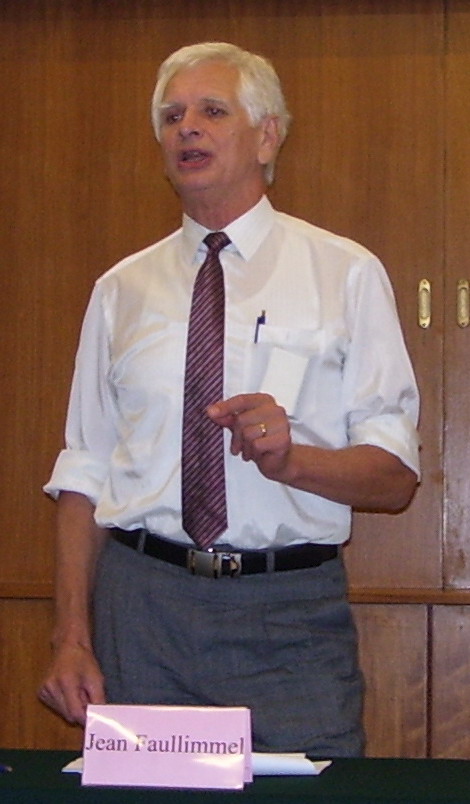
Introduction Today 20% of the world’s population consumes 86% of the world’s natural resources. If all developing countries adopted the same model as the industrial nations, the planet resources would not be enough. Seven more planets of our size would be needed. Such development model would lead to the depletion of all natural resources, the destruction of the environment and bring about conflicts between nations. What quality of life do we have if the basic necessities of the world population, such as clean air, safe drinking water and food free from hazardous chemicals; cannot be met? Or what does economic development brings us if its resulting pollution brings about greater health problems and lowers our quality of life? The pollution cycle Pollution has no border, a local pollution can have a global impact because of poor treatment, industrial accidents and import/export of food. Air pollutants from smoke stacks and vehicules exhausts through rain can become water and soils pollutants. Land pollutants and/or illegal hazardous waste dumping; through rain can reach groundwaters. Untreated industrial wastewater contaminates rivers and lakes; and become unsafe drinking water. Finally hazardous chemicals (pesticides, heavy metals, carcinogenic substances, etc.) contaminate farmland, the seas and groundwaters. The pollution cycle finishes when pollutants return to the polluter himself, affecting the health of the population and the ecosystem, not just on a regional scale but also on a global scale. The consequences of all this is the development of different kinds of cancer and respiratory diseases, and ultimately reduces the quality of our lives. The source of these health problems come from the contaminated air we breathe, the contaminated water we drink and the contaminated food we eat. As an example, on a global scale, background air pollution has increased in the last 100 years and more severely in the last 50 years. This is reflected in the concentration of ozone in the troposphere. Ozone is a very good indicator of air pollution, the greater the concentration of nitrogen oxides and volatile organic compounds, coming from industries and road transport, the greater the formation of ozone. Ozone is a powerful oxidant formed via photochemical reactions. Its health effects are severe coughing; shortness of breath; decline in lung function and increase in respiratory symptom. Its impact on the environment leads to the lowering of vegetation and crop yield, and it contributes to the global warming. Sustainable Development Sustainable Development is a solution to prevent pollution and over exploitation of natural resources. It states that economic, environmental and social developments are interdependent and should meet the needs of the present without compromising the ability of future generations to meet their own needs. In other words, this generation should not deplete our planet of its natural resources and should not leave a polluted Earth to the next generation. Environmental Development requires better environmental management to reduce waste, whether gas; liquid or solid; and to reduce over exploitation of natural resources. A better environmental performance, through more efficient manufacturing processes, means reducing air; liquid and land pollution to a minimum. It promotes pollution prevention and the use of renewable energies to reduce greenhouse gases. It helps to implement better standards and appropriate environmental legislation. And it promotes environmental education. In the context of severe pollution major developing countries are facing, the standard of environmental education is inadequate. Higher Education institutions have an important role to play in helping the population to gain environmental awareness. No progress can be made without such awareness at all level of society. Conclusion It is estimated that today 20% of Chinese farmland is already contaminated. China has become an important exporter of seafood, fruits and vegetables around the world. So what was initially a regional pollution because of inadequate waste treatment and environmental legislation becomes, through food export, a worldwide pollution that ultimately will affect the health of the world’s population. The same situation exists in other developing nations, such as India having a fast economic growth, but investing little in environmental development and education, and ultimately having the same consequences on the population. In the context of today’s economic globalization and the increasing interdependence between nations, collaborations between developing and developed countries become necessary to solve global environmental issues. Without access to clean air, to safe drinking water, to uncontaminated food, and without protection of human health and the eco-system, world peace and harmony between nations cannot be achieved.-------------------------------- To Construct a Harmonized World David Williams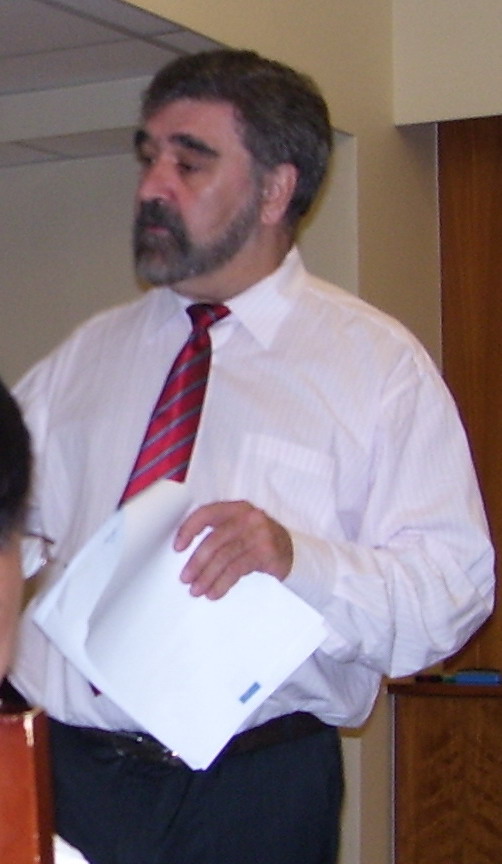
Speech given by Councillor David Williams a British Green Party Local Council Representative from Oxford UKto tie Conference on Cross Straits Cooperation held in the Great Hall of the People Beijing on Friday the 6th of July 2007 Could I take the opportunity of thanking the China Peace and Development Association for giving me the opportunity of speaking to the delegates on the theme of building a harmonious world. Philosophers from the beginning of time have struggled with the concept of how to create a harmonized society but it’s only in the last 60 years or so after two disastrous World Wars that we have been seeking policies and actions to generate global harmony and peace .Nobody pretends that it is going to be easy or that peace will break out tomorrow…there are too many vested interests and the baggage of history will inevitably slow us down but at all times let us be positive. How can we live together in peace, enjoy the little time we have on this beautiful planet without the fear of poverty and violence, how can we generate love and respect amongst all mankind ? I think we should not accept the views of those who think that nothing can be done that it’s all too big and out of mortal control. There are those who consider that man is inherently programmed to fight, that we are naturally aggressive and it can’t be stopped. For example The Greek philosopher Plato comments:‘Only the dead have seen the last of War’ that in my opinion a chronicle of despair. The vast majority of people are peace loving and seek cooperative social solutions to problems...not an immediate call to arms. If there is a natural tendency in my experience it is always to mediate to negotiate to try for peaceful solutions. In the words of our British war time leader Sir Winston Churchill jaw is better than war. I think we should take a Marxist positive approach. on his grave in High gate Cemetery in London is inscribed the words; “Philosophers have merely interpreted the world…..The point is to change it. This is a ' can do'philosophy…a praxis bymatching theory and action we can change history …mankind has created problems,by working togetherI am convinced that rational mankind can solve them. It will not be easy and there is a fantastic amount to be done but already there has been progress especially over the last 60 years and technology is coming to our assistance. During the First World War according to one of the British war poets only one soldier in 50 in the British Army had ever met a German prior to the fighting commencing. In a recent poll today in the British Army only 1 in 50 had not met somebody from an Arab country before they were deployed in Iraq and Afghanistan. The possibility for travel has changed the world dramatically. We now holiday abroad, often live and work abroad and in every capital worldwide there are ex patriot communities generating a multi cultural mix. Knowledge of other cultures and lifestyles has generated understanding and knowledge of other people. This has led to tolerance and compromise. If I know your history, appreciate and salute your culture I can understand and appreciate your opinion because I know what lies behind it ….Coming to an agreement is so much easier. Turning nations to violent solutions against each other becomes so much more difficult if there is a rich network of personal friendships and links. Encouraging travel especially amongst the young is vital …Students studying in my home City of Oxford bring a wealth of cultures to me City and I am sure take back a love of England back to their own people. However Travel is not the only technological change that is proving positive in breeding harmony. In fact in an age when we are more and more aware of the effects on the planet of long distance air flights we need to consider the environmental impact of millions upon millions moving around the planet in jet planes.Thankfully we now have the internet and mass communications. We know don’t have to move to talk to each other internationally. I can pick up this phone and talk directly to almost half the world’s population. We live in the age of 24 hour news and opinions .Information is flashed around the world in an instant. Dictatorship may seek to censor it and spread only their version of events but now we have multiplicity of sources of information from mobile phones to the web, videos to fax machines. As we have seen with the present Iraq war even if the newspapers and the national mediahave been compliant with the US and UK Government belligerencethe truth very quickly becomes apparent with mass communications between people…completely circumnavigating the politicians . People are using the new methods of communications to talk directly to each other and by passing the lies that politicians promote to stimulate conflict. The classic example recently being American soldiers using their bloggs on the internet to influence public opinion back home. If I have to think of one movement that is truly moving us into a more harmonious world it is the opening of doors to international trade. Businesses link to markets don’t want wars or economic dislocation undermining their profits. The growing network of international trade is fusing continents together like never before. The proportion of international trade within most economies has at least tripled over the last 50 years. The European Economic Community is a free trade area in Central and Western Europe where now after 50 years trade is so interconnected that the idea of a war is impossible to imagine. 60 years ago British Trade with Europe was only 9% now its 73% and the volume is 7 times larger. Now we have global integration.China is a classic example. Look at the volume of international trade in China over the last 20 years. It is on a scale that has never been seen in the history of mankind…but the upshot of it is that every business man or woman has a stake in keeping the peace. Wars now have very server effects on the world economy and with the integration of trade all suffer… all have a stake in peace. International trade is no longer an after thought in any economy it is at the forefront, the very dynamic of development …and by its nature a bringer of stability and peace generated by those engaged in it. Gradually we have built forums for resolving international friction and although they have been weak initially and seemed to be dominated by a few powerful nations slowly they are becoming more independent and effective. For 60 years now we have had the United Nations and since China became a full member the domination of the US has been challenged and a more balanced perspective taken.There are still many problems …but note the Third World War has not broken out yet and you may have noticed the US and the UK recognized in 2003 with their invasion of Iraq that they could not count on UN approval for the use of force and it never came. Theaccusation of illegality of that war is founded on the principle that it had no UN approval .As the war sinks into a bloody quagmire thelegitimacyUN hasbeen strengthened and the stupidity of war exposed. We have an international Court in The Hague where those who commit international crimes against Humanity can be tried. It’s true there have only been a few trials but they are all recent. The Courts credibility grows stronger and with it the theme of international justice. There is progress on many fronts to create a harmonized world…Peace movements have made progress although it must seem extremely slow. But there is now an acute danger that could destroy everything. …global warming. Scientists agree that no matter what we do now we will by our carbon and methane emissions raise the world temperature by 2 degrees by 2030 and that by the end of the Century we could easily have raised world temperatures by 5 degrees. Unless we act now. The effect on World Harmony will be catastrophic. Let’s be clear, we are already seeing Oils Wars (Energy wars) that’s really what Iraq is all about- who controls the oil fields. The fights for diminishing energy supplies will become ever more apparent. With global warming we will see equatorial deserts grow and billions of people on the move to the industrialized cooler north. Such mass migration has started with people from Central Africa moving into Europe in ever increasing numbers.The social tensions of the rapid migration of billions (not millions- billions) will be destabilizing. Everybody welcomes new migrants but on this massive scale the impact can only lead to social disharmony Even the predicted 2 degrees rise will mean a rise in sea levels of 5 -10 meters of higher tides. … When you consider that 40 % of the human population of this planet live in coastal areas that is going to have very dramatic effects. Some countries such as Bangladesh will effectively be wiped off the map. Here in China the effects of global warming are already starting to show …The mighty rivers that have always been the core of Chinas life and trade are starting to slow and dry up before they reach the sea. Freak weather is affecting China leading to flooding and drought. It’s the same in the UK we are having our first tornados …tornados in Britain??Hurricane Katrina in the USA is only a taste of what is to come. Unless we do something now in a few years time we will have wars breaking out about who controls the water course of certain rivers …water will become such a precious commodity in a dry arid world. It is not inevitable we can do something. The solutions are here and now. We have the answers but all that is needed is the political will to carry it through. In a few days time I am going down to Suzhou a city ofChina that is leading the way and showing the world that there can be affluence but that does not necessarily mean carbon and methane emissions. The First Secretary of the Communist Party Dr. Li Yuanchoa in Jiangsu has been advocating Green policies as integral to the development of the Province. Its only one city but it is a city that must be copied throughout China and in all parts of the world. The key to world harmony in the 21st century is a Green Agenda at local, regional, national and international levels. By looking for non carbon renewable energy sources such as hydro electric, thermal and solar, controlling industrial emissions, energy conservation measures great strides are being made. It requires stiff controls but it can be done…for the sake our children…NO! Given the latest data for your sake -for freak weather and drought are here now ….. you must do something now. It’s an uphill struggle, how for example are they to break this love affair with the car that billions of Chinese now have?? But it must be done … look around you Beijing is already on its seventh ring road and the amount of carbon emissions from cars has doubled in 10 years. Outside this great hall you can physically see the Carbon Monoxide. A blue haze in the street. In May 2007 China became officially the country with the largest Co 2 emissions in the world passing the USA. There will be mammoth international struggle too …for example the Chinese Government must playa pivotal role in persuading the USA to sign a newKyoto Protocol and making it more than a piece of paper but backed by real policies for change. Salvation is there, existing technologies can save us from destroying the planet and forcing mankind to divide into warring factions fighting over water, energy sources and diminishing fertile land. We can do …if we can stop global warming, the gains we have seen in other areas such as trade, telecommunications, travel and the UN will be preserved and a moreharmonious world can be preserved and built upon. I think it is really clear what we need to do, we simply need to bring everybody on board if we are to achieve…There s little doubt that we are the last generation who can do somethingacting in 20 years time will be too late ….. Let’s ‘Go Green’ and let’s do it now. Press Release:Councillor Williams who has been appointed as a Director of the newly formed Peace Association spoke to over 800 delegates from all over South East Asiain the Great Hall of the People just offTiananmenSquare and stressed the need to support the UN and Peace initiative around the world. However he went on to warn the delegates that unless each country adopts a framework of Green Initiatives to stop Co2 emissions the good work that has been done so far could all be undone as nations being to fight about oil, energy, water and declining fertile land. He suggested that the present Iraq War was another modern example of a war about who controls energy supplies. Councillor Williams who has been an active CND Peace campaigner since 1968 when he demonstrated against the Vietnam War as a student called on the Chinese Government to heed the lessons that where being learnt in the City ofSuzhou Southern China which has adopted a Green policy framework and to use its influence to bring the US Government to sign a new Kyoto Protocol on Environmental protection.---------------------------- How to construct a harmonized social world? Leo Semashko
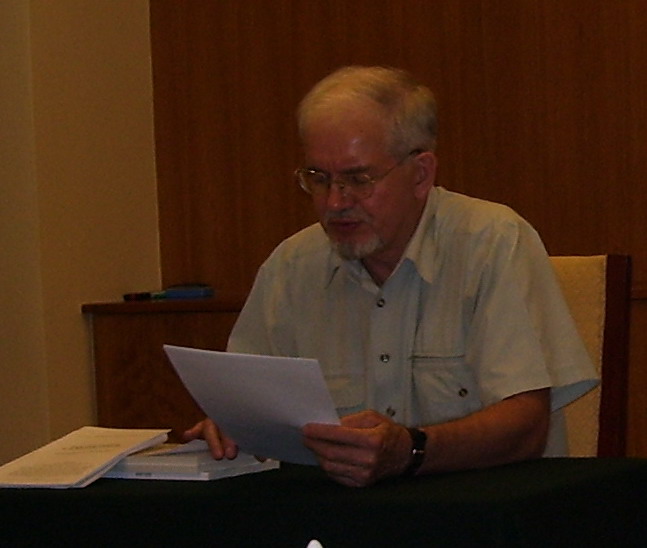
I want to express first of all a deep gratitude to the PR China Government and the World Peace and Development Association for an opportunity of participation in this first Forum on Chinese Culture. In a mark of gratitude I want to present to the Leaders of Government and Association two collective international books devoted to social harmony: Harmonious Era Calendar and Magna Carta of Harmony. Let briefly to be presented. I am Leo Semashko, Ph.D. and sociologist, State Councilor of St. Petersburg; Director of Tetrasociological Institute (ISSR) since 1993 and Russia IFLAC since 2005;Founder and President since 2005 of the International and Multicultural Website: A New Culture of Peace from Social Harmony and Children's Priority (briefly: Peace from Harmony), www.peacefromharmony.org,which unites nowmore 200 authors from 36 countries of the world (China including) and is published in 17 languages: English,Russian, Spanish, French, Greek, German, Portuguese, Japanese, Chinese, Arabic, Hebrew, Ukrainian, Romanian, Esperanto, Urdu, Hindi and Telugu; Author more 150 scientific works on social philosophy and sociology including 12 books. Chinese culture of harmony in a global history context The value of harmony was proclaimed in the most ancient civilizations of Egypt, India, Mexico, Africa, China, Greece, and many others. Harmony is an entirely human concept, for which there is evidence in every century of human history. Harmony is accepted by all cultures, but in every one it is expressed distinctly. For example, in Russian Orthodox culture, the harmony equivalent is “sobornost” (this word has no English translation, but its approximate meaning is “consent of diversity in community”). Harmony is multicultural and polymorphic. Harmony is acceptable for all peoples, groups, cultures, and religions. In all religions, God creates the world from chaos, and makes it harmonious. The great German philosopher, Gottfried Leibnitz, established the world divine law “harmonia praestabilita” (preset harmony) three centuries ago. However, until now, the value of harmony was not recognized as a universal, global priority (10-11). It anywhere did not become national culture and cultural tradition, except for China. The sources of this tradition in China, counting 2.5 thousand years, go from Confucius (551-479 B.C.), who was a great Chinese thinker, philosopher, statesman and educator. He was also the founder of Confucianism. He was an advocate the building of a harmonious society through individuals' self-refinement in manners and taste. Confucius considered an internal harmony of the human with the sky (God and world) as a basis of life. The Confucianism central moral categories: humanity (ren) and social order (li) also are penetrated and connected by heavenly harmony. These ideas of harmony are systematized in Confucius' "Fourbooks" (Si shu) with the summary comment of Zhu Xi as leader of the (Song) Neoconfucianism in the 12th century. Confucius counted, that education of the human should begin with poetry and come to an end by music. Poetry and music embody harmony. Confucius has formulated a Golden Rule of harmony: "that do not wish to self that do not make also for another". Confucianism idea and the culture of harmony have received development and religious consecration in Chinese Buddhism. Confucianism dominated in the Chinese society up to 1911 (on other data – up to 1949) and was spread to Europe in the late 16th century. The Confucianism and Buddhism culture of harmony never allowed them to become an ideological flag for wars and violence as approve many scientists. The cultural national tradition of harmony has allowed the Communist Party of China in October 2006 to refuse from keeping dictatorship of the proletariat and to replace it by "building a society of social harmony". Importance of the Chinese example of harmonious construction The first attempt of a scientific estimation and importance of the Chinese example of harmonious construction was undertaken by 43 authors from 16 countries in the Magna Carta of Harmony, which its second edition in seven languages was published on our site in April 2007 and in the book variant in June 2007. It is submitted to you. The first edition was published on our site "Peace from harmony" in December 2006. In the Magna Carta of Harmony is written: "China’s resolve to build a society of harmony constitutes the beginning of a Great Global Turn of humanity toward social harmony and a new culture of peace in the 21st century. China’s choice removes us from the certainty of a global winter of war and violence toward a summer of global harmony (2). … Humanity is now witnessing an epoch-making resolve to turn from a history of clashes and enmity (ethnic, class, economic, religious, and ideological) to a history of harmony and consent. China’s 180-degree turn to social harmony is not accidental. Rather, it is founded on the harmonious values of Buddhism and Confucianism in the traditions of Chinese culture (1). … The history of humanity has been moving toward the goal of social harmony, but only in a global information civilization are the necessary conditions present to create social harmony. China has made a first step and proclaimed it as a national ideal. The United States of America, Russia, and other multicultural, industrial nations could do the same (11). " Importance of the Magna Carta of Harmony for harmonization of the social world and China Confucius and Confucianism developed individual harmonization and through it went to social harmony. However, the social harmony has the own laws, forces (classes) and energy (human activity). In a social science the first time has come to it nearer Karl Marx and Fredrick Engels, when they in 1845 in "German Ideology" picked out four spheres of social production and subsequently four spheres of public life: material, social, political and spiritual. However, them materialistic monism, statement of primary economy and secondary other spheres, rejected Marxism from social harmony. From primary economy Marxism deduced a determining role of one working class, necessity of class struggle (class antagonism) and victory of dictatorship of the proletariat in it. All these monistic ideas are incompatible with social harmony, because it is pluralistic by definition. Social harmony, as it is determined in our Charter, "is a unity and consent of diversity including contrasts ". There, where there is no much, diversity, i.e. pluralism, there harmony is impossible. The harmony is incompatible with monism, it is compatible only with pluralism but not with anyone. Pluralism of the equal on importance but different on quality four spheres of social reproduction/life, and also pluralism of similar sphere classes of the population recognizes as a basis of social harmony in our Magna Carta . Sphere classes differ not under the property, as in Marxism, and on employment in spheres of production, that makes these classes by the equally necessary and cooperating harmonious classes. (By the way, Confucius also divided all population into four categories of people, but on an attribute of the attitude and possession of knowledge). Sphere classes exclude class struggle and antagonism. only these classes can and are the actors (subjects) of social harmony. The opening of sphere classes is a merit of tetrasociology (four-dimensional philosophy and scientific theory of a society), which I develop since 1976. Tetrasociology is the first scientific theory of social harmony of four spheres of social reproduction and four sphere classes employed in them. only sphere classes and also the harmonious political parties and harmonious sphere state, appropriating them, are capable to harmonize the social world both on global and national levels. The culture of harmony requires development and addition in social science of harmony of the societal spheres and classes. The suggestions for the PRC Government A turn to social harmony, as well as to any other social good, tends to have many meanings and to be contradicted. Thus, it requires painstaking deliberations and a universal scientific approach.Proceeding from the needs of Chinese harmonization in the appropriate approach and Magna Carta of Harmony, where it is expressed in practical refraction, I brought on this remarkable Forum five practical suggestions for the PR China Government. They are submitted (excepting last) in three languages: Russian, English and Chinese. Our suggestions are the following: 1. Work in the Institute of Sociology of CASS the long-term (for 10 years) Program of harmonious construction in China on the basis of the tetrasociological scientific theory of the harmonious spheres and harmonious sphere classes. The project of this Program is offered as one of variants for discussion in the Chinese society and the PRC Government. 2. Create the Global Civil Movement "For social harmony in the world" in support of China with headquarter in Beijing. The basis of this movement could become that International community of harmony, which has developed on our International site "Peace from harmony". This community unites more than 200 humans from 36 countries of the world and tends of growth. 3. Create in China the International Satellite TV Broadcasting on Harmonious Peace Culture and its International Editorial Staff. 4. Create in China the International and Interconfessional Academy of Harmony for training of the experts in the field of social harmony for all spheres of society and regions of the world. 5. Introduce the lectures course "Culture of harmonious peace" in Beijing (for the beginning) University. I developed this course. Its Program is submitted on our site (http://www.peacefromharmony.org/?cat=en_c&key=240). I am ready to read it at any time. The projects of these suggestions, especially the third and fourth, are extremely important for the PRC Government before Olympiad-2008. They will help China, as the first country in the world building a harmonious society, to attach the Olympiad the qualitatively new meaning in history of Olympic movement as "Olympiad of Peace from Harmony". It corresponds to the Chinese culture of harmony, will give it the new dimension of development and will allow expanding its international support and influence in the world.----------------------------------------------- 發展和平的文化――進入和諧世界的必進經之路
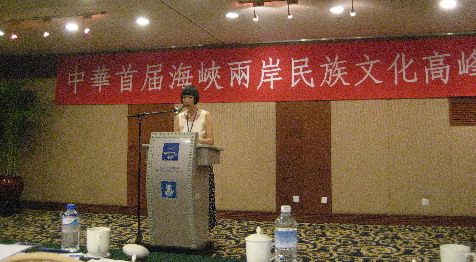
中華首屆海峽兩岸民族文化高峰論壇
北京人民大會堂2007年7 月5-9日 楊幗籣和平大使聯合國世界和平教育者協會首席代表致力於聯合國的和平教育、環境保護和削減核武器的目標 白晝和黑夜是完全相反的,但是同占一個空間。當白晝降臨於清晨,黑夜即逐漸消失。如果我們發展和平文化,野蠻文化亦將逐漸被取代。中國近代史是由於十九世紀中葉開始的一系列外國入侵而定型。列強不斷對中國進行經濟和軍力的侵犯,從1840年中英和1860年中英法二次鴉片戰爭開始,中國經歷了多次西方國家的武器進犯,1894年日本侵華的甲午戰爭,1900年的八國(英國、法國、德國、澳大利亞、美國、俄國、日本、義大利)聯軍侵華。所有這一切帶來了眾多喪權辱國的不平等條約,以及中國人民的反抗—1900年的義和團運動。因此,歷經了十次革命,孫中山先生于1911年推翻了腐敗的清王朝,建立了中華民國。隨後內亂在各地發生,1937年日本再次侵華,中國傷亡慘重,給人民帶來深重災難。和許多其他國家的情況一樣,大陸和臺灣是由一場內戰而分離的兄妹。內戰時常發生在兄妹之間意見不齊時。內戰的殘暴是全世界所周知的。譬如1861-1865年美國內戰造成將近一百萬人陣亡,大約占當時人口的3%。基於1860年人口統計,當時美國13-43歲的白種男人中有8%亡於內戰,包括北部的6%和南部18%。國共內戰亦導致了近百萬生靈塗炭,大約占當時人口的0.65%-2%。我生長在一個為海峽兩岸做出貢獻的家庭。我的啟蒙導師姑姑楊秀芳醫師是北京協和醫學院第二期畢業生,1919年五四運動的學生領袖。之後她啟發臺灣學生發起“自覺運動”。我的姑父陶桂林在南京建造了中山陵,叔叔趙耀東先生,是臺灣的經濟部長,帶領了臺灣走向繁榮。在大陸一方,我去年逝世的姨父馮錫良於1981年創立了《中國日報》,促進了中國與世界其他各國的交流。我懷念大陸和臺灣。我在南京出生,在臺灣長大,並且有很多要好的童年玩伴。我也受惠於美國良好的醫學和商業教育。我將自己看作一位世界公民。中華遺產、文化和中國人民,都使我念念不忘。我很高興看到近年來中國一如既往的和平發展道路。這帶給我們為下一代建設一個更加美好世界的希望。很高興看到大陸和臺灣的重聚。我知道我們都有同樣的期望:建設一個和平、自力更生的國家,再也不受外國侵略,並有充足的能力和富餘的資源幫助其他危難國家的人民。根據世界銀行的資料,中國的GDP(國內生產總值)在1820年位居世界第一。在150多年之後,中國的經濟終於復蘇了。但是,基於我近四十年在美國的生活體驗,缺乏精神文明、商業倫理和社會和諧的協調發展,建設資本主義社會將會帶來諸多負面影響。在中華傳統文化以及孔子和佛教的哲理中,都涉及同情和博愛。我們要以寬宏大量的態度,甩脫過去的慘痛經驗,才能進入新的富強社會。依照中國傳統儒家思想:“修身、齊家、治國、平天下。”是人們生存的自然法則。“天下為公。”這是世界大同的理念。“老吾老以及人之老,幼吾幼以及人之幼,世界即和平。”這是力行博愛的表現。在中國歷史上,當沒有一個強大的中央政府領導時,社會就會陷入戰亂和分裂,傷亡慘重。從下表中可以從一個角度看到中國歷來戰爭傷亡情況。在中國傳統哲學中,一個優秀的政府應該像父母一樣哺育人民。中國需要一個負責任、有效率的政府,像父母照顧孩子一樣,為人民服務,為全體公民提供良好的教育條件、充足的食物、良好的醫療條件以及公平就業的機會。最重要的是,一個優秀的政府應該在社會培育一種和平的文化。只有當我們生活在遍及的和平與和諧的文化中,才會擁有內心的和平,接下來是家庭和睦,國家和平;世界和平才能最終實現。 附表:歷史以來中國戰爭、衝突、饑荒死亡人數最低的估計

-------------------------------------------------------------------------------------
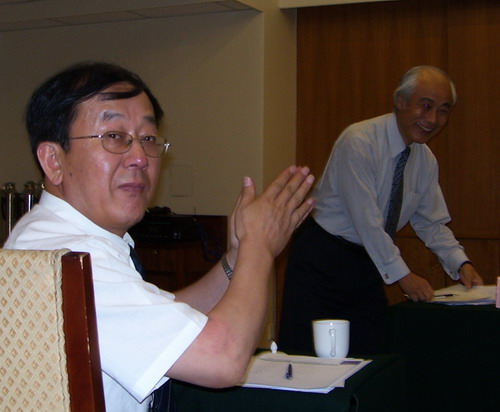
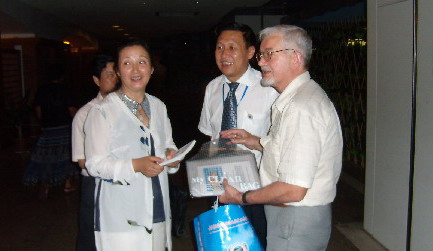
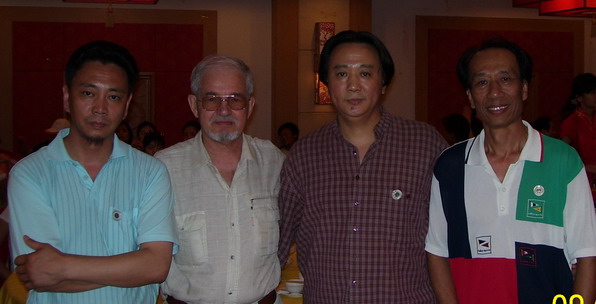
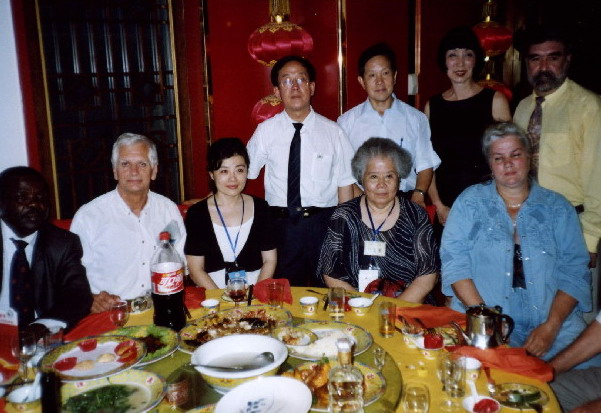
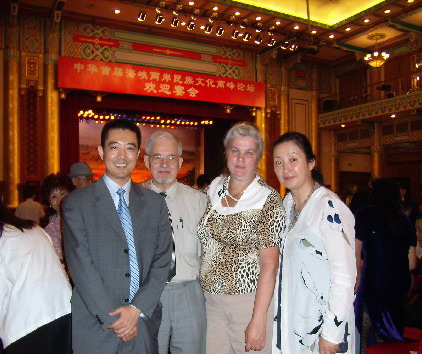
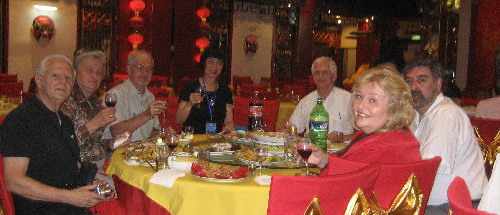
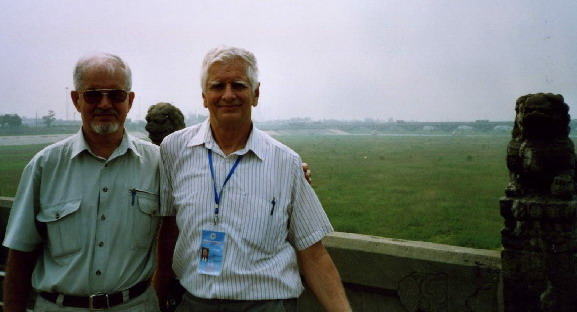
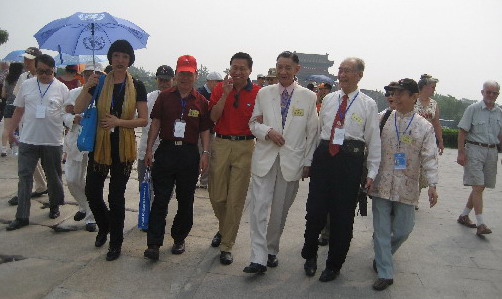
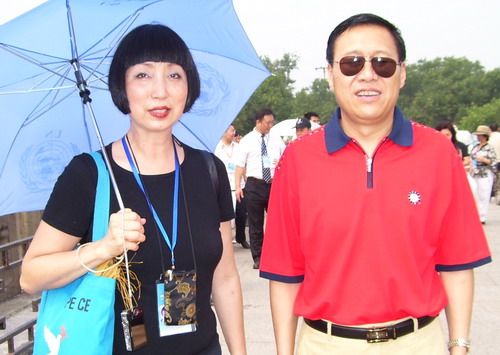
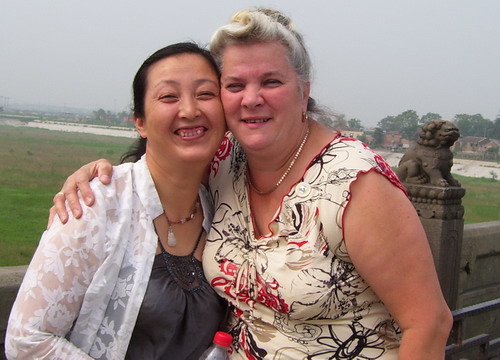
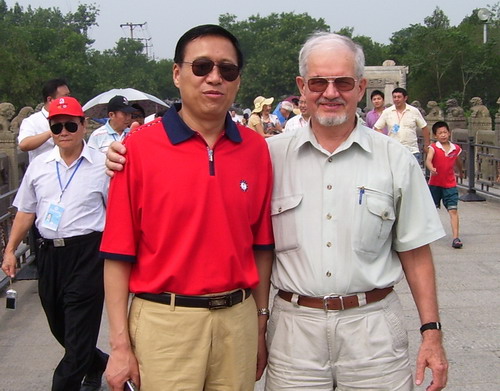
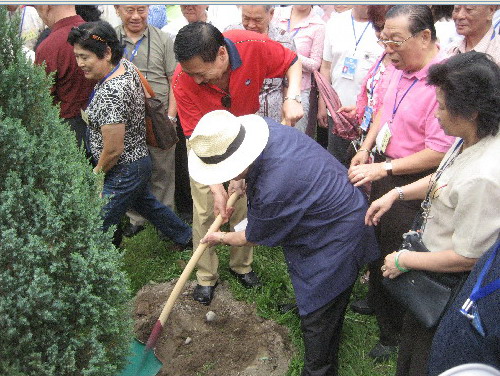
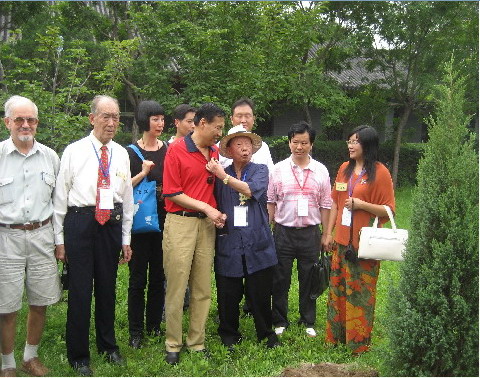
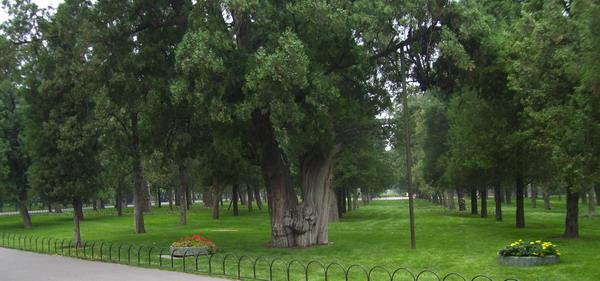
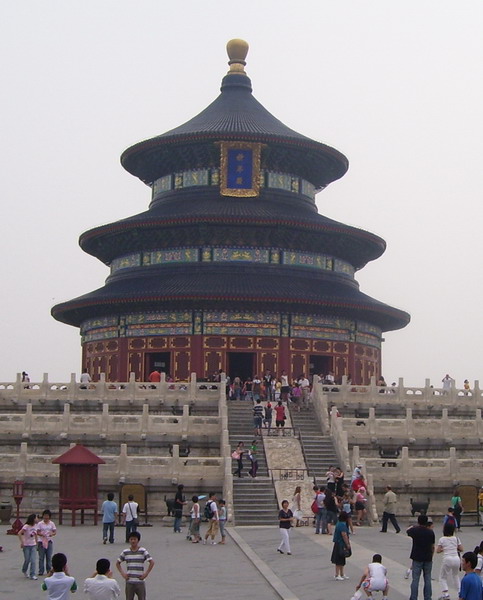
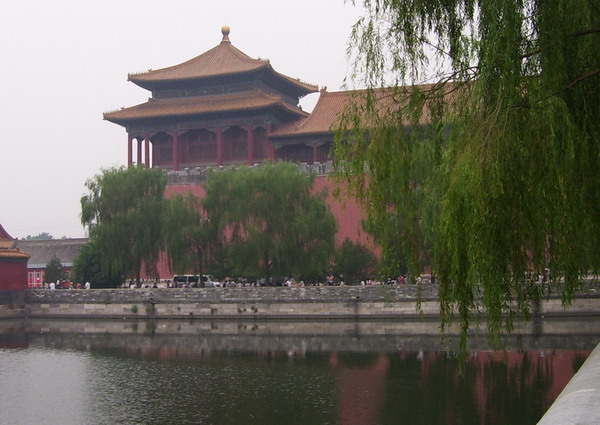
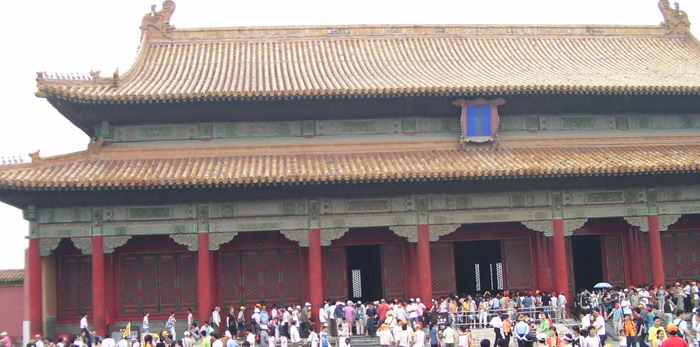
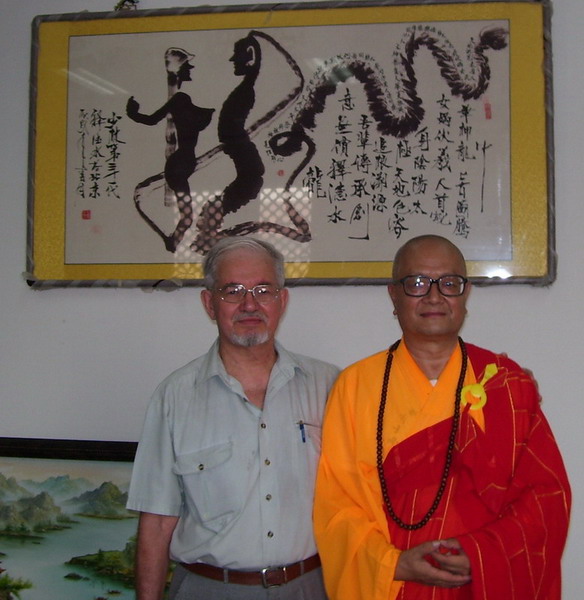

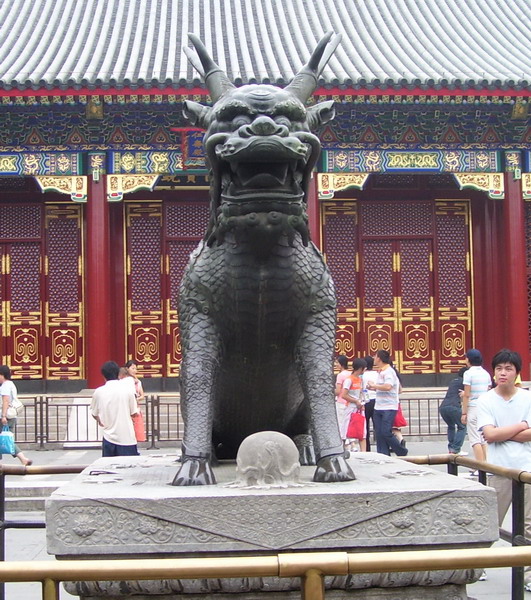
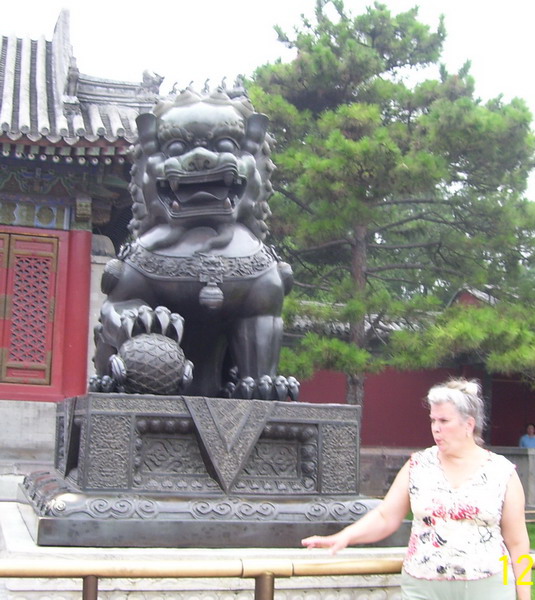
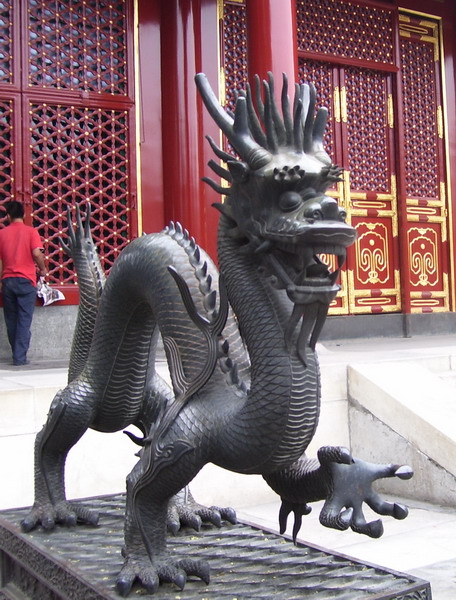
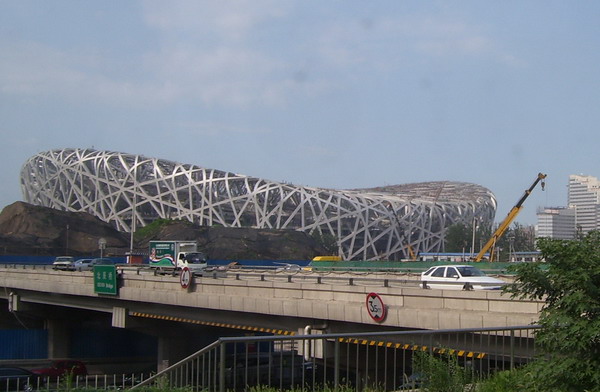
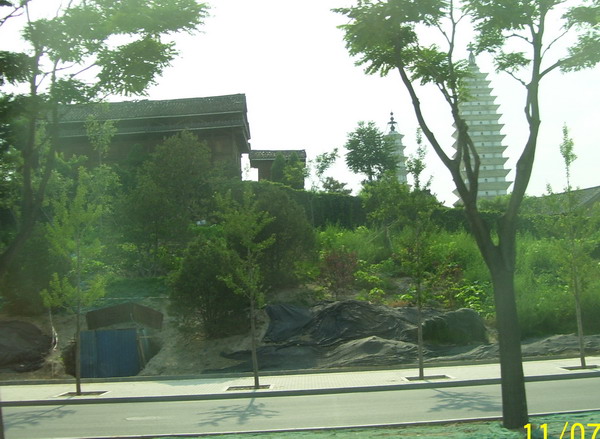
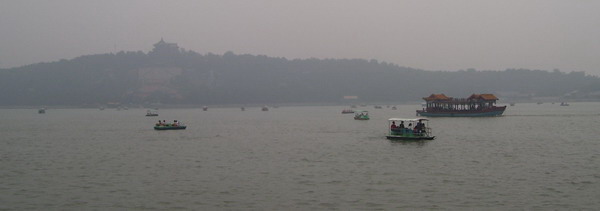
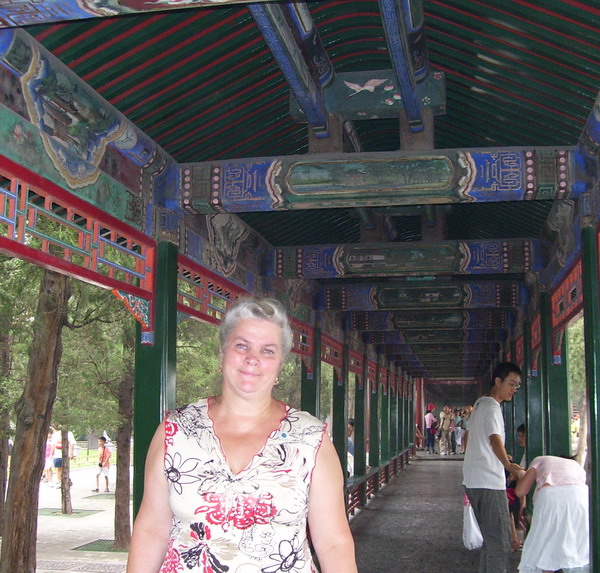
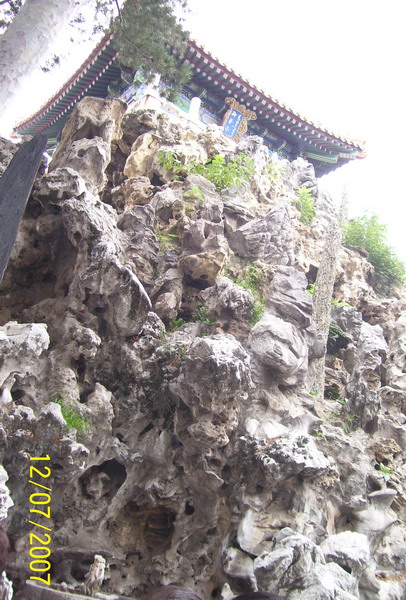
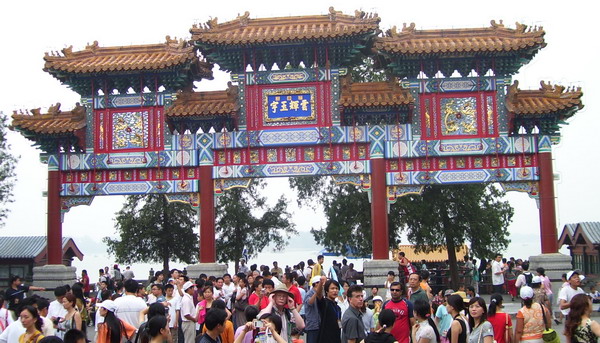
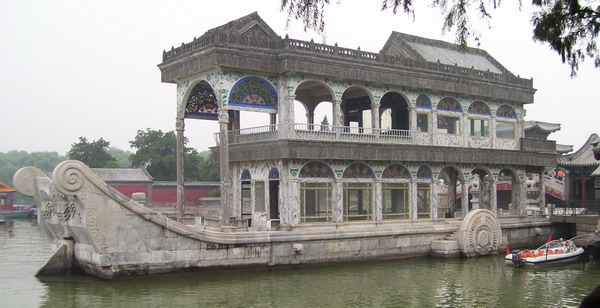
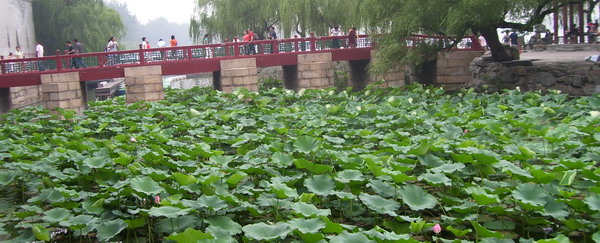
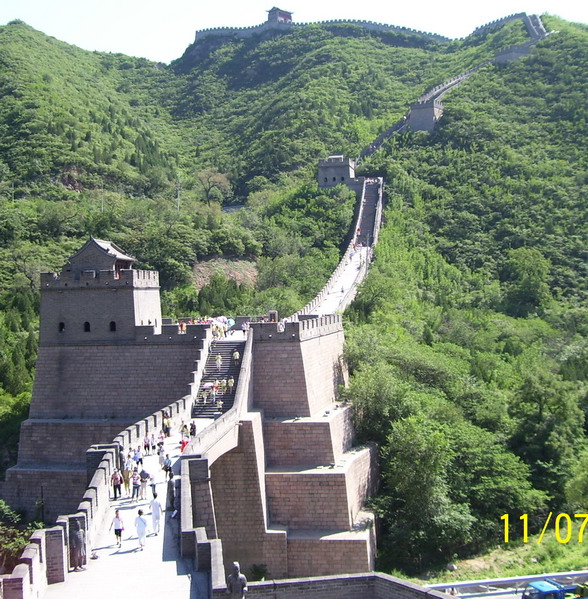
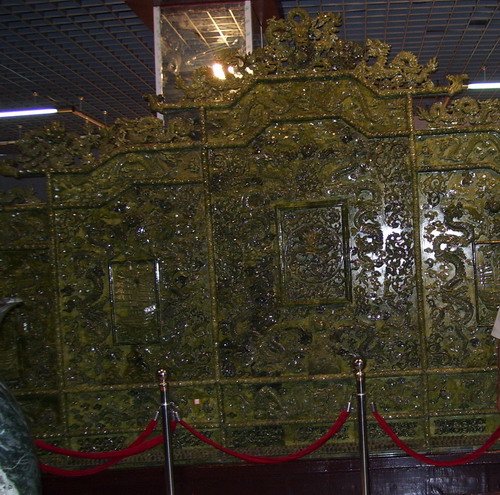
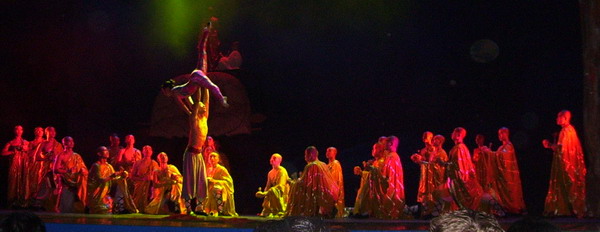
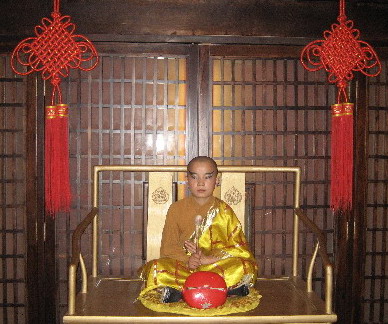
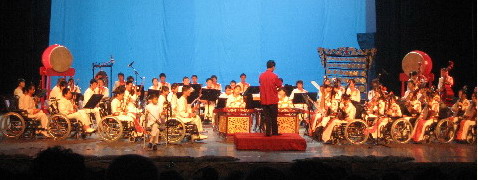
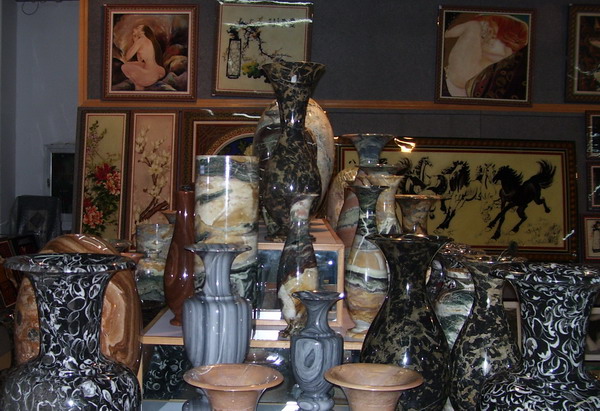
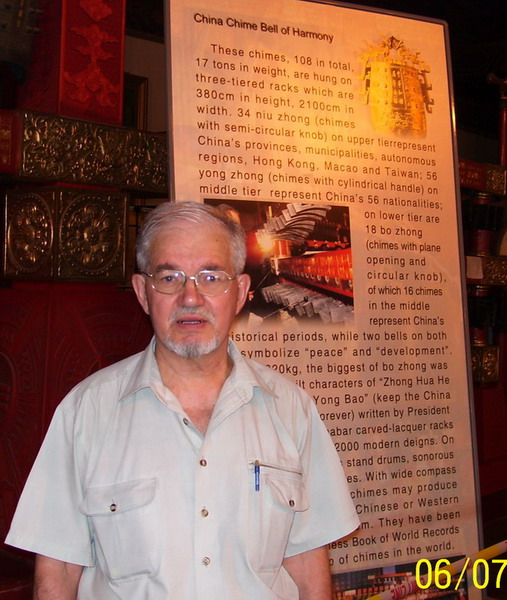
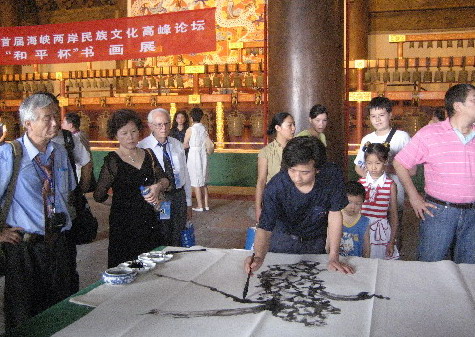
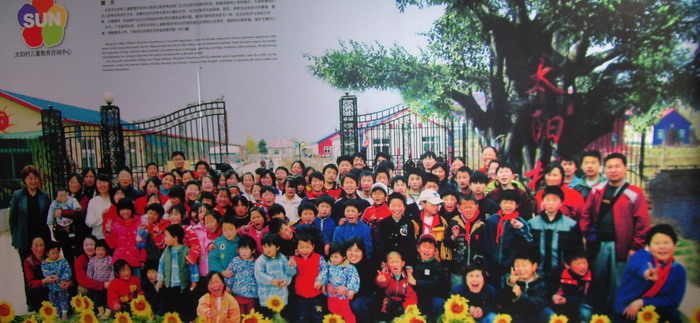
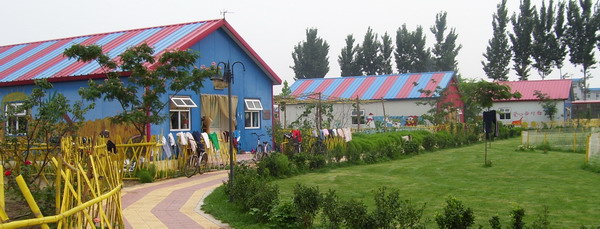
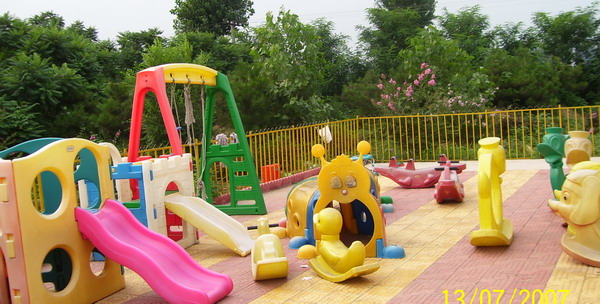
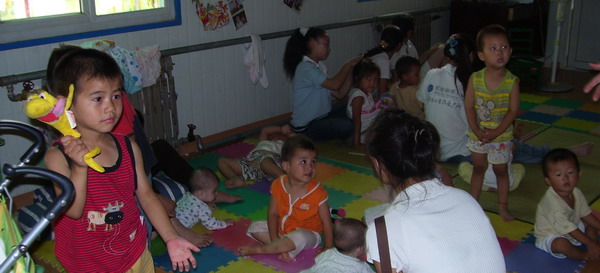
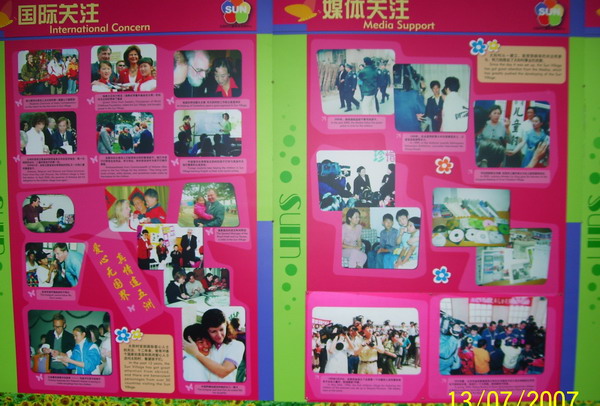
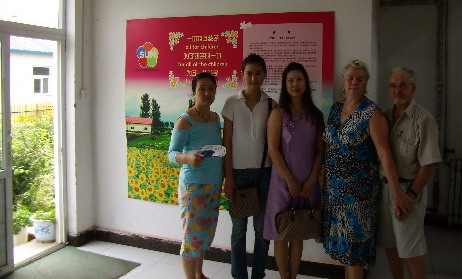
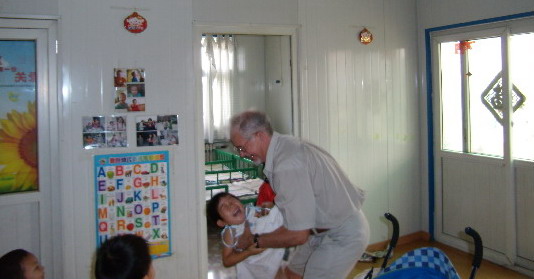
--------------------------------------------------------
Up
|
| |
© Website author: Leo Semashko, 2005; © designed by Roman Snitko, 2005
|
|
|